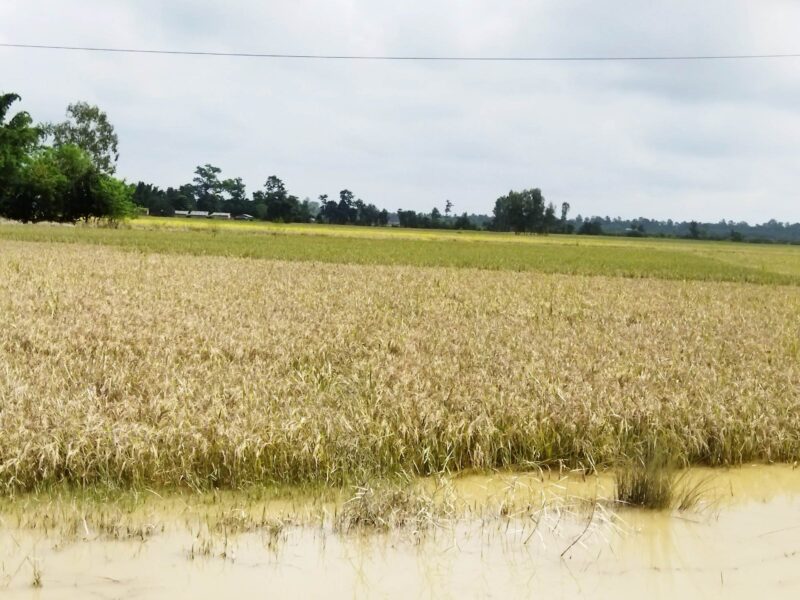Rich nations are failing to meet their international climate finance commitments according to a recent report from the global affairs think tank, Overseas Development Organisation (ODI), supported by The Zurich Climate Resilience Alliance.
This shortfall stands glaringly among wealthier countries, who are responsible for the vast majority of emissions causing climate change with only eight of 23 countries paying their fair share.
Without this financing, low-income countries, who are being hit hardest by climate change, are unable to help people adapt their lives and livelihoods to new weather patterns.
The underperformance of countries like the USA, Spain, and Australia amplifies the impact of climate change on vulnerable countries, highlighting a grand failure in taking responsibility for their role.
A target of providing $100 billion a year in climate finance – agreed by global north in Copenhagen in 2009 – has now been missed for the 11th year in a row, based on research data from the latest full available year, 2021.

The report finds that, for climate finance in 2021 ($100bn annual target):
- The USA provided $9 billion in 2021; just 21% of its fair share. If the USA were to meet its shortfall it would need to provide an additional $34 billion per year.
- Eight developed countries – Norway, France, Sweden, Denmark, Germany, Switzerland, Luxembourg, and the Netherlands – met their fair share towards the annual $100 billion target.
The UK – who came under fire earlier this year for attempting to walk back on its Climate Finance commitments – provided only two-thirds of their fair share.
For adaptation finance (to meet the aim of at least doubling this, from $20bn to $40bn):
- The USA has the largest shortfall, missing their fair share goal by $14 billion.
- None of Australia, Spain, Canada, and the UK met their fair share either; they should be providing an additional $500 million to $1 billion each.
Edwin Obiero, Practical Action, Regional Director West Africa said:
“Those with the biggest responsibilities for climate change are behaving like it is business as usual, like we can take a vacation from our commitments for a while and pick up the pieces later.
“For vulnerable communities that already struggle to live with the brutal impacts of a changing climate, be it crop failure from no rain or flooding from too much rain, every broken promise is a death sentence.
“We must do everything possible to win back their trust by investing in solutions that help them adapt to climate change.
“Climate Action and Climate Finance are inextricably linked. We will never be able to address climate change, or deal with its impact, if we don’t address the question of finance.
“Science points us towards achieving more ambitious targets, more urgently. To do so, it is necessary to have more ambitious financing. The question is, ‘How can we be more ambitious if we are unable to commit to the smaller promises?’”


The new research, backed by the Zurich Climate Resilience Alliance of which Practical Action is a member, builds on ODI’s proven “Fair Share” methodology for attributing responsibility for climate finance.
ODI’s Fair Share methodology
- Developed countries’ $100bn climate finance goal is collective, and a precise formula for money from each developed country should contribute was not agreed, making it difficult to hold countries accountable and benchmark if a country’s contribution is enough.
- To provide a benchmark, ODI created a composite indicator reflecting each individual country’s responsibility for our changed climate. The indicator reflects historic carbon dioxide emissions, economic heft, and population, to assess if a country’s contribution corresponds to its fair share of climate finance.
- How did we assess a country’s ‘fair share’ of the annual $100 billion goal? Against three metrics: cumulative territorial CO2 emissions since 1990 as a proxy for historical responsibility for climate change, Gross National Income as a proxy for ability to pay, and population as the simplest option to attribute responsibility equally across people in developed countries. Our composite indicator placed equal weight on each of these three metrics.
- How did we assess a country’s ‘fair share’ of the $40 billion adaptation goal
No quantitative target was adopted when it comes to the doubling of adaptation finance agreed at COP26 in 2021, only that adaptation finance should at least double compared to 2019 levels. We use the quantitative adaptation finance target of $40 billion a year, as $20 billion of adaptation finance was reported by the OECD in 2019 (OECD, 2021).
ODI Research Fellow and the Fair Share report’s lead author Dr Laetitia Pettinotti said:
“It’s a total failure of responsibility by developed countries who bear historical responsibility for climate change. Many of the world’s self-professed climate-leading countries – the UK, Canada and Australia, all members of the global Champions Group on Adaptation Finance – are just not providing their fair share of contributions.
“Understanding individual countries ‘progress towards providing their fair share is critical if we are to create the kind of accountability and ambition needed to accelerate climate action.”
This year’s Fair Share report – the third annual climate finance analysis ODI has undertaken – includes a special focus on finance for climate change adaptation, critical to answer developing countries’ needs. This additional focus reflects that, at COP26 developed countries agreed to at least double their provision of adaptation finance.